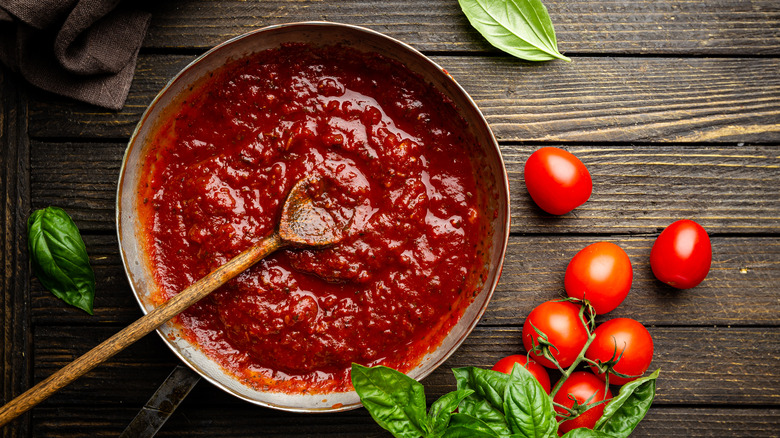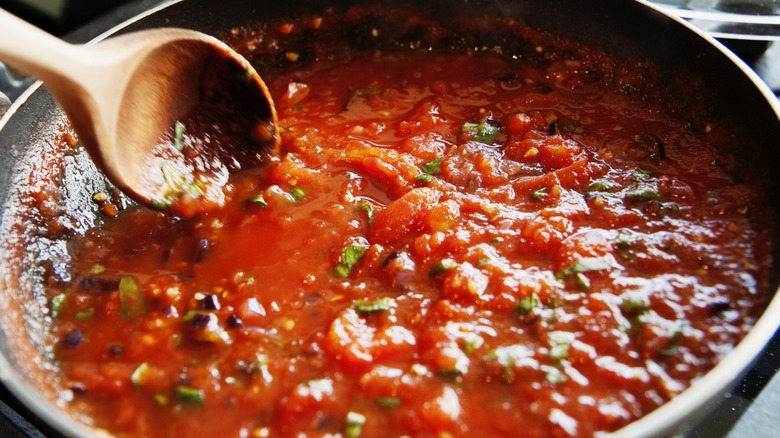Why It's A Mistake To Use The Wrong Sized Pan While Making Pasta Sauce
A chef without the right tools is like a superhero without powers: While resourcefulness can pay off to a degree, it can only get you so far. Without proper cooking instruments, you simply can't get the job done. According to The New York Times, the materials you choose to cook with can heavily impact what you're eating at the end of the day, especially when it comes to your vessel of choice.
Getting the most out of your pots and pans involves reading up on the best cleaning processes, preheating and deglazing properly, and, especially, choosing the right ones for individual cooking tasks. For example, you'll want to opt for glass or ceramic dishes when making casseroles, like lasagna. If you need something to withstand a high level of heat, go for cast iron. When you're cooking for a long time at a low temperature, enameled cast iron is your best bet. And for cooks wanting to up their pasta sauce game, choosing the right pan can — you guessed it — make a huge difference. Thrillist reported that size matters when sauce is on the menu.
Pan surface area makes a difference in pasta sauce
There's an art to making pasta sauce, and it begins with using the right pan, according to Home Cook World. The material is the first thing you'll probably consider when browsing a selection of pans at the store or even your own kitchen cabinet. Reach for something with enameled cast iron, stainless steel, and other non-stick options whenever a spaghetti craving strikes. Carbon steel and cast iron won't react well with the acids in your sauce, so leave those on the shelf to prevent damaged equipment or sauce with a metallic flavor.
Before whipping up your marinara sauce recipe, you'll then want to consider the size of your pan. Citing tips from Italian chefs, Thrillist reported that a wide skillet will serve you best because it provides the most surface area. Your garlic will cook faster in the initial steps of your sauce, and the excess liquid will evaporate faster during the simmering process, leading to a more flavorful result in less time. Plus, a bigger pan means you'll have more space to toss your finished pasta and sauce to glossy perfection when it's time to serve a crowd.

